Why are Texans so obsessed with H-E-B grocery stores? The secrets behind its success
Every two weeks, Melanie Quinn gets in her car and drives 45 minutes from her home in Keller to the H-E-B Plus! grocery store in Burleson.
The 28-year-old has inflammatory arthritis, so making long drives is painful. But, she says, her trips are “more than just picking up groceries” — along the way, she passes by multiple Walmarts, Krogers, Targets or Albertsons where she could easily do her shopping.
To Quinn, the bi-weekly visits to H-E-B to stock up on butter tortillas and fresh, local produce is an experience that “gives her happiness.”
“You feel really welcome while you’re shopping there,” Quinn said. “Plus, there’s always new stuff to look for. We always leave there with a couple of new things to try, because there can be seasonal things.”
Quinn isn’t the only North Texan who drives out of her way to visit H-E-Bs on the outskirts of Dallas-Fort Worth. And she isn’t the only shopper who was thrilled recently by the headline that Fort Worth’s first H-E-B is apparently coming to the far north part of the city.
Why are so many Texans obsessed with H-E-B? Why do people who move away from Texas lament how much they miss a grocery store — as much as (or more than) Texas barbecue, warm winters and Whataburger? How did H-E-B grow from a small store in rural Hill Country more than a century ago to one of the biggest, most successful and truly iconic Texas companies in the state’s history?
It is, after all, just a grocery store.
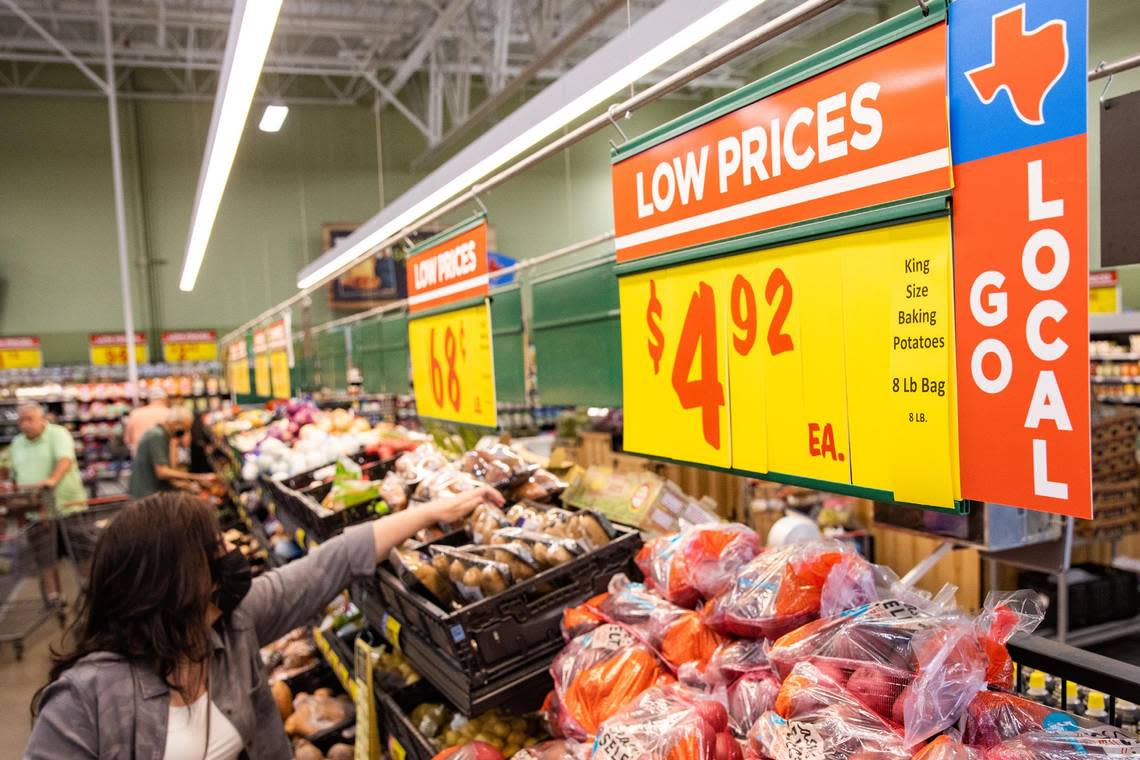
Many shoppers say the charm is in the quality of H-E-B’s extensive array of private-label brands for everything from Texas-themed coffee to jalapeno-cheddar sausage. Or the custom spice blends and affordable ready-to-cook meals, the huge meat selection (this is Texas, let’s not forget) and the just-as-large section for produce. For other customers, the appeal lies in Texas-bred BBQ sauces, Texas-shaped waffle irons and Texas Hill Country scented soap.
“Texas being as big as it is, there’s a cluster of meanings that people can associate, attach to, and derive from Texas,” said Partha Krishnamurthy, a University of Houston marketing professor. “What H-E-B does is tap into that reservoir of meaning. That is probably one of the reasons why H-E-B is so successful.”
And that wasn’t by accident.
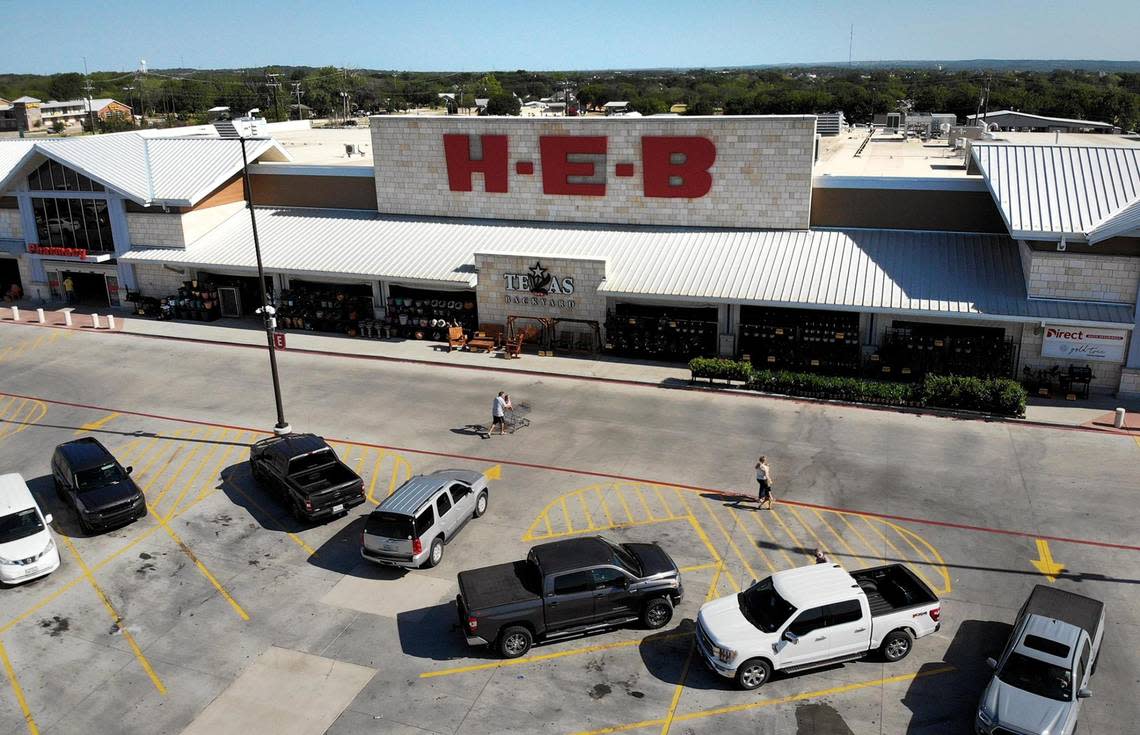
H-E-B’s roots in Hill Country
In 1905, with only $60, Florence Butt opened a small grocery store in Kerrville, about 100 miles west of Austin. The business supported her family and husband, who suffered from tuberculosis. Her youngest son, Howard Edward Butt, distributed groceries on horseback as a child and took over management in 1919, according to the Texas State Historical Association.
Butt failed multiple times trying to expand in central Texas before succeeding in the late 1920s with new stores in Del Rio and the Rio Grande valley, which he began to call H.E. Butt Grocery Company. By the late 1940s, he changed the chain name to H-E-B, after his initials.
Through the 1950s and 1960s, H-E-B became the leading food retailer in central and south Texas with more than 80 stores. The company has been passed through the Butt family over the 117 years since its founding.
Today, H-E-B Grocery Company LP has more than 420 stores and 145,000 employees across Texas and Mexico, according to the company. H-E-B sees $34 billion in annual sales and is the largest food retailer and private employer in Texas.
The company also operates 10 Central Market gourmet grocery stores in each of the state’s four largest metros, and two Mi Tienda Mexican grocery stores in Houston. The company says it is “rapidly expanding” its H-E-B Wellness primary care and nutrition clinics in Texas, currently in the Austin and San Antonio markets, with a model that provides affordable, straight-forward pricing and an option of monthly subscriptions.
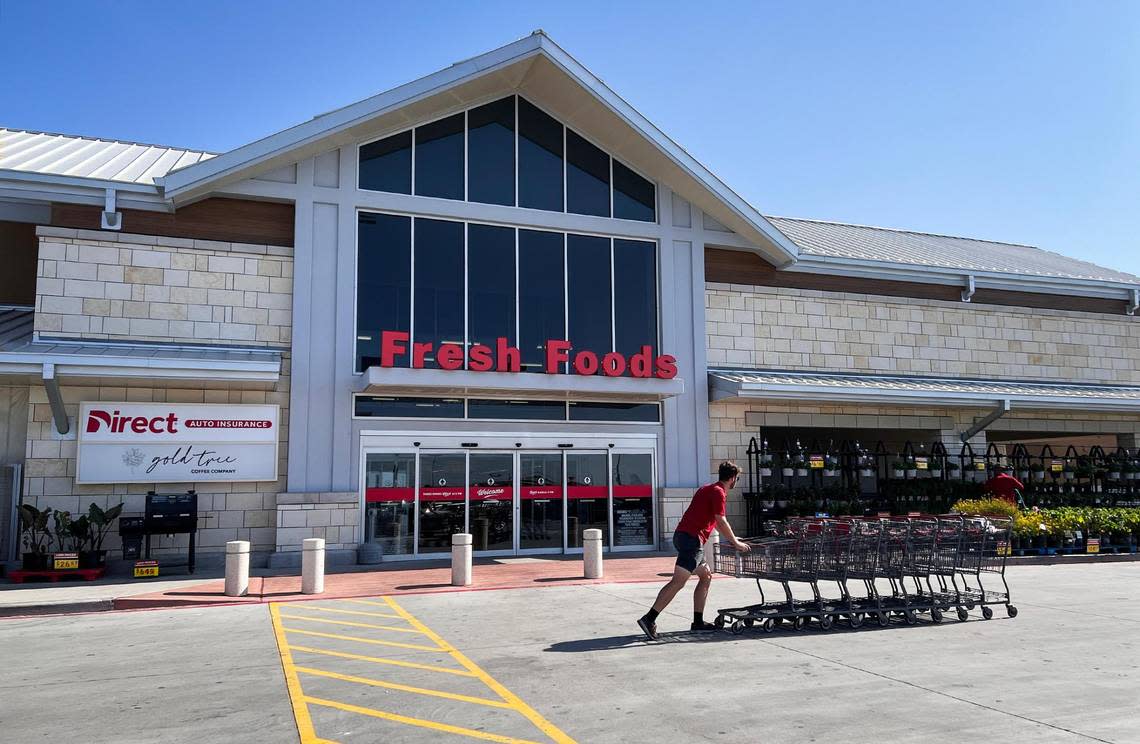
H-E-B representatives declined to be interviewed for this story. But industry and marketing experts say the company’s strategy and intentional pace for expansion are part of its success.
“Their growth has been very deliberate,” said Mark Hamstra, a freelance business writer for Supermarket News. “They’ve picked sites very carefully.”
When expanding into the Houston market in 1990, H-E-B started on the outskirts of the metro and added stores one at a time, slowly moving closer into downtown. The chain made sure to secure a good location before building the next one, Hamstra said.
“They didn’t go in and acquire a bunch of stores, which some supermarket companies have done to gain a presence in a new market,” Hamstra said. “They really did a lot of store-by-store construction.”
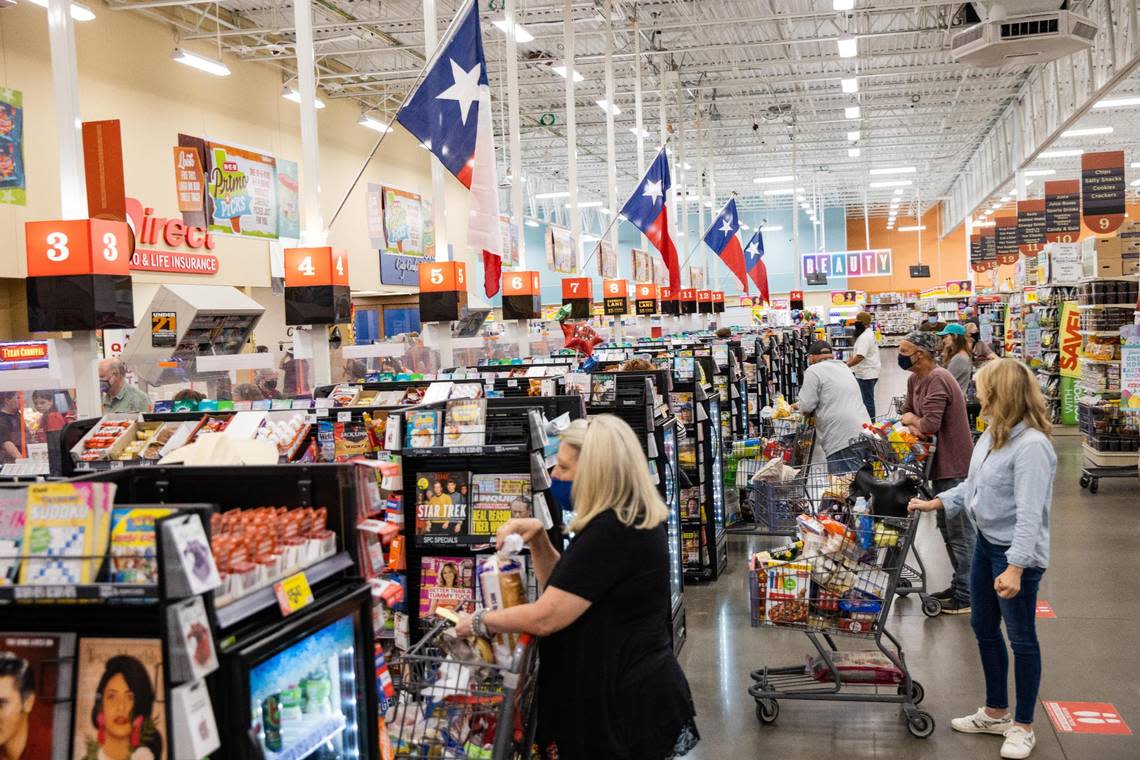
Through the chain’s expansion across Texas, H-E-B established trust and brand resonance with new customers by tailoring product offerings specific to the geographic area.
This means no two H-E-B locations are exactly the same, setting the chain apart from nationwide competitors like Walmart and Kroger.
H-E-B utilizes a hyperlocal marketing strategy that involves background research to understand the education, income and race demographics of a surrounding area, said Alexandrea Merrell, director of strategic communications at New York City-based Orndee PR. This strategy allows H-E-B to cater to the specific needs of the community and creates a tremendous sense of brand loyalty in customers, she said.
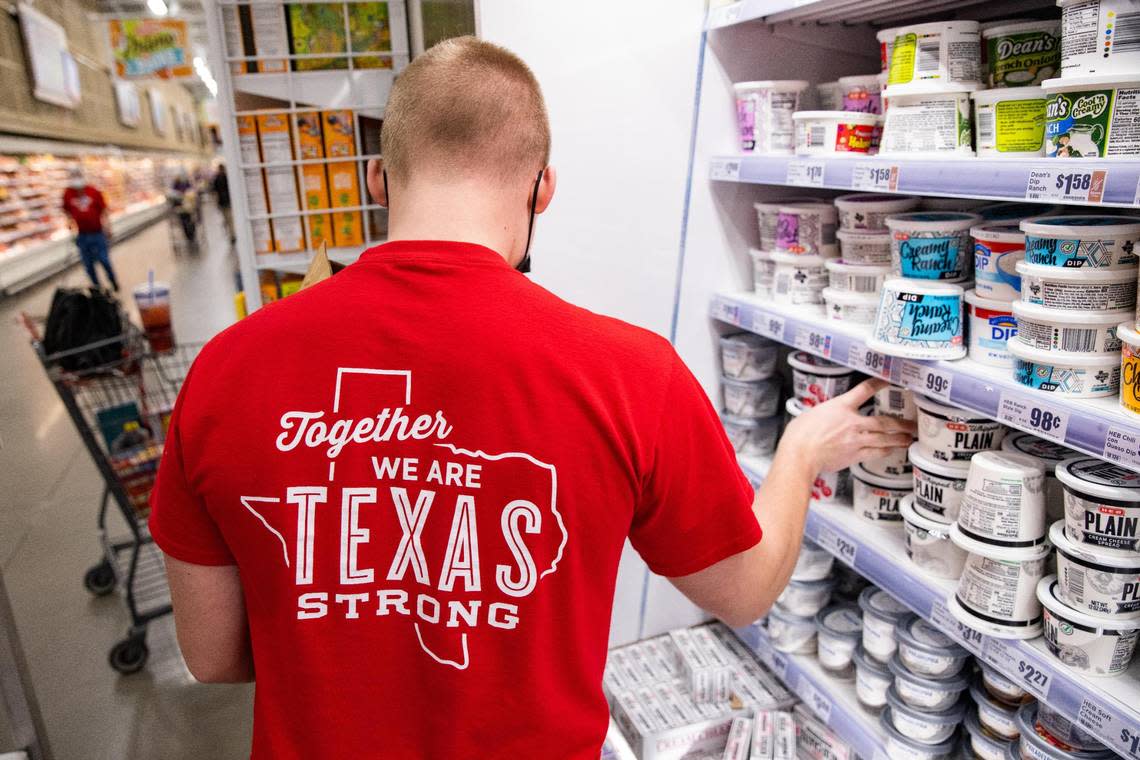
“You create loyalty by making sure that your consumers feel seen and heard, and cater to their particular wants and needs,” Merrell said. “Once you’ve got that, once they trust you, they know the quality is there. People will pay more. They know that you are contributing to the community.”
The return of steadfast customers is largely based on trust of the brand, Merrell said. Brand loyalty in grocery retailing extends beyond inclusion of specific items and ingredients to the quality of products taken home.
“One of the things that is so unique in food branding, in particular for grocery stores, is that there’s really few things that are more intimate than the food we eat,” Merrell said. “Because of the intimacy, it is easier to create a brand where people are extremely loyal.
Moving into North Texas
As H-E-B expands in North Texas, the same strategy of guerrilla warfare against grocery competitors is coming to play. The chain started with locations in Burleson, Cleburne, Granbury and Hudson Oaks, and an expansion into Fort Worth is expected next.
In early June, a developer announcing other, smaller retailers coming to a new shopping center at Alliance Town Center included a mention that H-E-B would be the anchor tenant. H-E-B declined to comment except to say it hadn’t made any public announcements about a store at the site, along I-35W in far north Fort Worth. Shortly after, the developer backtracked and said “a major grocery” will be built on the property, which is owned by H-E-B.
The Fort Worth property is one of many tracts in H-E-B’s North Texas real estate portfolio. According to deed documents, H-E-B agreed to build a store in Alliance by August 2026, though that doesn’t guarantee it will happen.
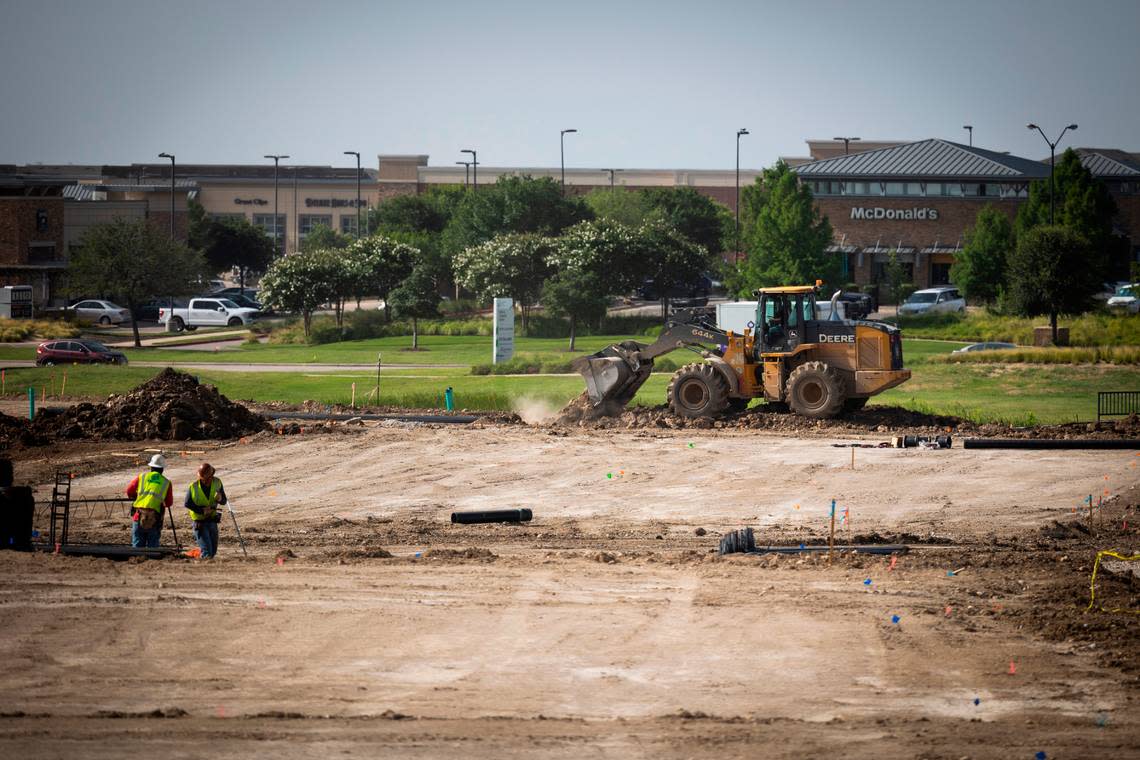
The news came weeks after the chain announced the groundbreaking of a store in Allen. Other new stores are already announced, including an approved location in Forney about 55 miles east of Fort Worth, and plans for stores in McKinney, Plano and Frisco.
Despite the popularity of the brand, H-E-B’s success in Fort Worth may not happen overnight.
“H-E-B has its work cut out for it going into Dallas-Fort Worth,” Hamstra said. “With top players like Kroger, Walmart, Albertsons ... all having a huge chunk of the market — those are all really top-notch players that are well-financed, so it’s going to be a long, slow process for H-E-B.”
A large company like H-E-B can afford to take the long-term view, Hamstra said. H-E-B can utilize investment to build up its presence, marketing capabilities and distribution capabilities, he said.
As a privately owned company, Wall Street is not breathing down H-E-B’s neck. The company does not have to face shareholder pressure to produce short-term results at the expense of long-term success, said Leigh McAlister, the Ed and Molly Smith chair in business administration at UT Austin.
“Huge asset being privately held,” McAlister said. “It provides lots of flexibility. I think the reason H-E-B is so loved is because of the way they’ve chosen to use that flexibility.”
In focusing on long-term success and future growth, H-E-B’s perspective is not singularly focused on quarterly numbers, but instead how the company can solve customer problems through the long haul.
“I’ve heard their management say they want everybody in the stores to have the heart of a servant,” McAlister said. “That may not be the most cost-effective way.”
A company culture in which employees are encouraged to stop stocking shelves when they can help customers may not help with productivity, but it earns the loyalty and enthusiasm of customers like Quinn, the Keller woman who drives to Burleson to shop at H-E-B Plus! Quinn insists she has yet to have a negative experience at her favorite store.
“H-E-B makes me happy when I’m there. It’s something about the colors that they use for the store, it’s the layout, it’s how their signage is,” Quinn said. “The people are always nice, I can always leave with everything I’m looking for, they do a lot for the community.”
QUIZ: How well do you know H-E-B? 10 questions to test your love of the Texas grocer.
